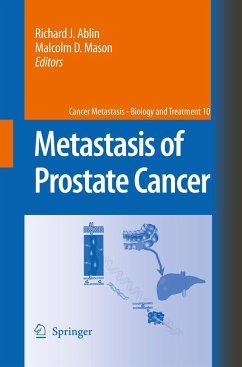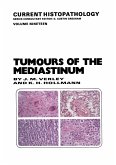Without metastasis, prostate cancer would be both tolerable and treatable. The high incidence of indolent and organ confined disease is testament to this sweeping generalisation. Equally, if molecular markers of metastatic spread can be identified, then the choice of treatment for many patients would be easier and more radical, even curative. However, should prevention and treatment of the primary tumors prove difficult or impossible, then a knowledge of the phenotype of advanced metastatic tumors should allow us to target these lesions for destruction by conventional (drug based) or more innovative means such as gene and/or immunotherapy (1). The process of metastasis has been reviewed many times (e. g. , 2) and has been subdivided for ease of analysis into a number of discrete stages (see Figure 1). It has been suggested that at least 10 separate genetic 2. ECM degradation: migration MMP ; Integrin ; TIMP 3. Intravasation MMP TIMP 1. Cellular independence 4. Transport Adhesion loss and evasion (E Cadherin ) of host immune system MHCClass1 ICAM-1 to block T cell receptor 5. Arrest of movement: endothelial adhesion CD44 or switch 6. Extravasation to colonise new site 7. Proliferation at Laminin R distant site to form Integrin switch METASTASIS Figure 1. Stages in prostate cancer metastasis. Basic processes in tumor metastases are indicated in the boxes with some key changes in gene expression indicated at each stage by the solid arrows.
Bitte wählen Sie Ihr Anliegen aus.
Rechnungen
Retourenschein anfordern
Bestellstatus
Storno








